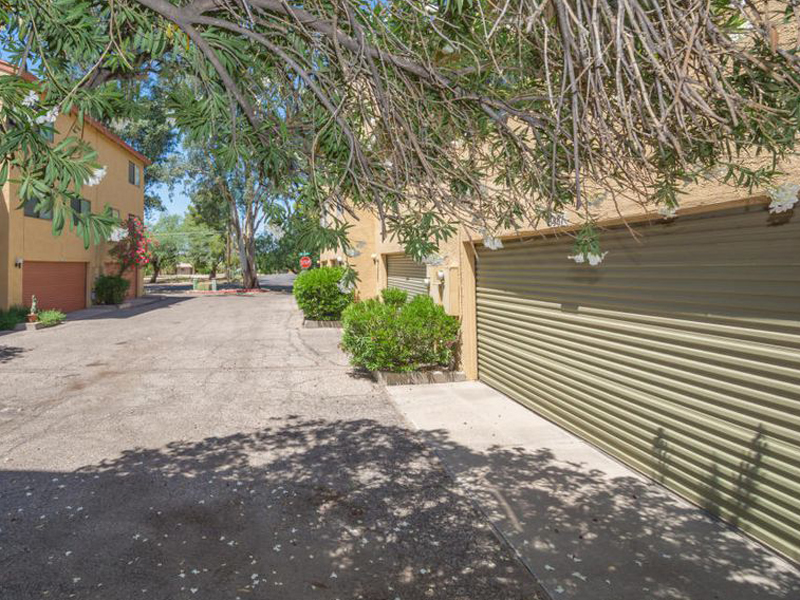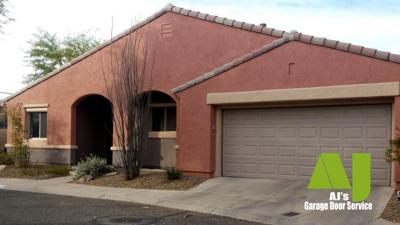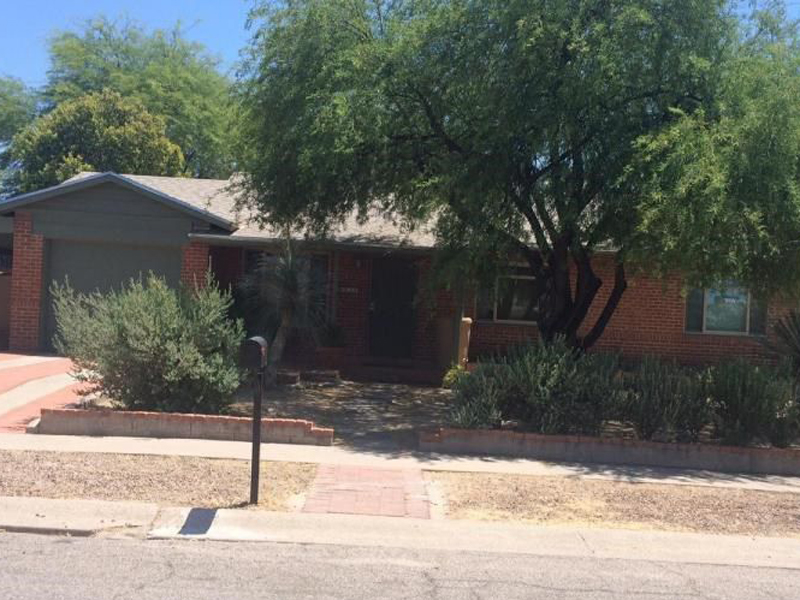Is Your Garage Door Stuck? Here's What to Do First
When your garage door won't open, start with these important safety and security checks before trying any type of repair work. Initially, ensure nobody is standing near the door and that vehicles are free from the opening. Search for evident indications of damage like damaged panels, bent tracks, or hanging cables. If you see a snapped springtime or drastically harmed parts, quit instantly and call an expert—-- these repairs require customized devices and experience to manage securely.

Check These 6 Points Prior To Calling a Professional
Prior to presuming you require costly repairs, run through this quick diagnostic list that solves most garage door troubles:
-
Source of power: Confirm the opener is connected in and the outlet is working
-
Remote batteries: Change dead batteries in your remote
-
Manual lock: Examine if somebody mistakenly involved the manual lock
-
Obstructions: Try to find particles blocking the door's course or sensors
-
Emergency situation launch: Make sure the red emergency situation cord hasn't been pulled
-
Circuit breaker: Validate the garage circuit hasn't tripped
These straightforward checks solve about 70% of garage door concerns without needing professional treatment.
10 Common Reasons Your Garage Door Will Not Open Up
Comprehending why your garage door opener isn't functioning aids you select the ideal option. Here are one of the most constant reasons house owners experience:
Dead remote batteries represent the most basic solution—-- when batteries die, the remote can not send out signals to the opener. Power blackouts or stumbled breakers cut electricity to the motor. Damaged springs protect against the door from lifting properly and require prompt professional interest. Sensing unit imbalance causes security systems to obstruct door operation. Track obstructions stop rollers from moving efficiently. Motor overload triggers automatic shutoffs when the opener identifies resistance. Limitation button troubles confuse the opener regarding door setting. Wire damage interferes with the training system. Weather-related problems affect door movement during severe temperatures. Part wear from age progressively reduces system efficiency.
Problem # 1: Dead Remote Batteries
When your wall surface button works however your remote does not, dead batteries are typically the wrongdoer. A lot of garage door remotes make use of either 3-volt lithium or 12-volt alkaline batteries. Eliminate the back cover of your remote and examine the battery kind. Replace with fresh batteries and evaluate the remote. If it still does not work, you may need to reprogram it to your opener. Consult your opener's guidebook for particular reprogramming instructions, as the procedure varies by manufacturer.
Trouble # 2: Power Supply Issues
Garage door power issues frequently originate from loose links or tripped circuits. Inspect that the opener is securely connected into its electrical outlet—-- vibration can loosen up links with time. Check the electrical outlet with one more gadget to confirm it's working. Analyze your home's breaker box for stumbled circuits, specifically if you've experienced tornados or power fluctuations. GFCI electrical outlets might have stumbled and need resetting. If the opener has power yet won't react, the issue most likely lies somewhere else in the system.
Problem # 3: Broken or Damaged Springs
Damaged garage door springs are among the most dangerous elements to take care of. If you hear a loud bang from your garage or discover the door really feels incredibly heavy when trying to raise by hand, a springtime has most likely broken. Torsion springs run horizontally above the door, while expansion springs rest on either side. Never ever try spring repairs on your own—-- these parts save significant tension that can create major injury or fatality. Specialist replacement generally costs $150-$300 however guarantees your safety.
Trouble # 4: Obstructed Safety And Security Sensing Units
Modern garage doors feature safety sensing units that stop closure when objects are detected. These sensing units can quit the door from opening up if they're unclean, misaligned, or obstructed by debris. Tidy sensing unit lenses with a soft cloth and guarantee nothing obstructs the invisible light beam between them. Check that sensors are correctly straightened—-- the majority of have indicator lights that show connection condition. Sensor issues frequently resolve with basic cleaning and modification.
Issue # 5: Track Obstructions or Damages
Garage door tracks guide rollers as the door moves up and down. Dust, particles, old oil, or little objects can jam the system. Inspect tracks aesthetically and get rid of any type of obstructions with a brush or fabric. Search for dents, flexes, or warping that might hamper smooth procedure. Small track changes are feasible for handy home owners, but substantial damage requires specialist fixing to stop more troubles or safety and security threats.
Trouble # 6: Garage Door Opener Electric Motor Issues
When the garage door electric motor runs but the door does not move, a number of problems could be responsible. The electric motor may be overloaded and turning off as a safety measure. Equipment wear, especially in older devices, can avoid correct operation. Chain or belt drive troubles affect power transmission. If you listen to uncommon grinding, clicking, or humming noises, quit using the opener right away. Motor repairs commonly cost more than replacement, specifically for units over one decade old.
Step-by-Step Do It Yourself Troubleshooting Overview
Follow this systematic approach to garage door repairing while prioritizing safety throughout the procedure:
Action 1: Test the wall surface button first. If it works yet the remote doesn't, concentrate on remote issues. If neither jobs, examine power supply.
Step 2: Examine the manual launch cable. If it's been drawn, the opener is disengaged from the door. Press the cart back to reconnect.
Action 3: Manually check the door by disengaging the opener and trying to lift the door by hand. It must move smoothly and stay in place when half-open.
Step 4: Evaluate noticeable components for damages, paying unique attention to springs, cable televisions, and tracks.
Step 5: Inspect all safety attributes consisting of sensors, restriction switches, and auto-reverse functions.
Step 6: Test various controls (remote, wall surface button, keypad) to separate the problem resource.
Constantly use shatterproof glass and work gloves when doing inspections, and never ever effort repair services on springtimes or high-tension elements.
When to Call an Expert vs. do it yourself Solutions

Recognizing when to call a garage door professional versus attempting do it yourself repair services shields both your safety and security and your budget. Manage these issues yourself: dead remote batteries, power supply problems, minor track cleansing, sensing unit cleansing and alignment, and standard lubrication.
Never ever attempt these fixings yourself: springtime substitute or change, wire repair services, major track adjustment, electric wiring concerns, opener electric motor substitute, or any fixing including high-tension elements. Expert specialists have specialized tools, training, and insurance policy to handle hazardous repair work safely.
Think about repair work expenses versus substitute costs, specifically for doors over 15 years of ages. Modern garage doors offer better safety functions, power effectiveness, and reliability than older models.
Emergency Situation Garage Door Solutions
When you're stuck to a garage door that will not open and need prompt accessibility, comply with these emergency situation procedures:
Guidebook Procedure: Draw the red emergency release cable to disengage the opener. This permits manual procedure however needs proper strategy to prevent injury. Raise the door gradually and evenly, using leg muscular tissues as opposed to your back. Many domestic doors consider 100-150 extra pounds, making them workable for the majority of adults.
Short-lived Solutions: If the door opens up by hand however will not stay up, prop it open with sawhorses or clamps—-- never utilize your body or vehicles as assistances. For doors that won't close completely, make certain the opening is protected if you must leave.
Emergency situation Service: Lots of garage door companies offer 24/7 emergency situation solution for situations including safety and security issues, entraped vehicles, or full system failures. While extra expensive than routine service calls, emergency situation repairs supply prompt services when needed most.
Security Warning: What NOT to Do
Garage door safety and security needs comprehending hazardous repairs that need to never be attempted by house owners:
Never ever attempt to fix springtimes—-- they keep enough power to cause deadly injuries when they snap or are improperly taken care of. Don't force a stuck door—-- this can harm the opener, tracks, or door panels, developing much more costly issues. Stay clear of bypassing safety attributes—-- sensors and auto-reverse systems stop significant injuries and home damages.
Don't overlook weird noises—-- grinding, scuffing, or banging audios suggest problems that get worse with time. Never ever utilize the door if cords are torn or damaged—-- the door might fall unexpectedly. Don't try electric repairs unless you're a certified electrician—-- garage door openers utilize both 120V home existing and low-voltage control circuits.

Preventative Upkeep to Stay Clear Of Future Issues
Routine garage door maintenance stops most usual troubles and prolongs system life expectancy substantially:
Month-to-month Tasks: Visual inspection of all parts, evaluating auto-reverse security features, examining and tightening equipment, and cleansing tracks and sensors.
Quarterly Jobs: Lubricating all moving get rid of suitable garage door lubricating substance, testing manual procedure, and checking climate securing.
Annual Jobs: Professional inspection and tune-up, spring modification if needed, and opener upkeep consisting of belt or chain change.
Seasonal Jobs: Preparing for weather condition extremes, inspecting insulation, and readjusting opener settings for temperature level modifications.
Regular maintenance prices much less than emergency repair services and ensures trusted operation year-round.
Garage Door Won't Open Frequently Asked Questions
Why will not my garage door open with the remote but deals with the wall switch?
This typically shows dead remote batteries, signal disturbance, or the demand to reprogram the remote. Check batteries initially, after that consult your opener guidebook for reprogramming guidelines.
Can I manually open my garage door if the power is out?
Yes, pull the red emergency launch cable to disengage the opener, then raise the door manually. Be gotten ready for the door's complete weight and lift with correct method to avoid injury.
Just how do I understand if my garage door springtime is broken?
Indicators include a loud bang from the garage, the door feeling incredibly heavy when lifting by hand, visible voids in the springtime coils, or the door just opening a few inches before quiting.
Is it secure to use my garage door if it won't open all the way?
No, partial operation suggests mechanical troubles that could worsen all of a sudden. Quit using the door and have it evaluated by a specialist to avoid additional damages or injury.
What should I do if my garage door opens up but will not shut?
Examine safety and security sensing units for blockages or misalignment, take a look at the tracks for debris, and test the auto-reverse feature. If these do not resolve the trouble, consult a professional.
Just how much does it set you back to take care of a garage door that won't open?
Expenses differ extensively depending on the issue: battery replacement ($5-$10), specialist diagnosis ($50-$100), spring replacement ($150-$300), or opener replacement ($200-$500).
Can weather impact my garage door's ability to open?
Yes, extreme cold can enlarge lubes and affect metal elements, while warmth can trigger expansion issues. Many issues resolve as temperatures stabilize, but consistent issues might require professional interest.
Why does my garage door open up a few inches then quit?
This normally suggests busted springs, limitation button problems, or track blockages. The opener's safety features stop operation when resistance is identified, protecting against damages to the motor or door.
Get Professional Aid for Complex Problems
When DIY troubleshooting doesn't resolve your garage door problems, expert specialists supply the expertise and devices required for secure, enduring repair services. Certified professionals diagnose issues precisely, make use of manufacturer-approved components, and supply guarantees on their work.
Expert solutions include: thorough system examinations, springtime and cord substitute, opener repair service and replacement, track placement and substitute, electric troubleshooting, and emergency situation service telephone calls.
What to anticipate: ahead of time rates, licensed and insured technicians, same-day solution for lots of repair work, and follow-up maintenance recommendations.
Many garage door firms use cost-free quotes for significant repair work and can supply immediate services for urgent problems influencing home security or lorry accessibility.
Getting Your Garage Door Working Again
A garage door that won't open does not have to destroy your day or break your spending plan. Start with simple troubleshooting actions like checking power, changing batteries, and examining for evident blockages. Several troubles have quick do it yourself options that bring back typical operation within minutes.
Nevertheless, acknowledge when expert assistance is required—-- particularly for spring-related issues, electrical problems, or complex mechanical failings. Attempting dangerous repair services on your own takes the chance of major injury and commonly develops more best lubricant for garage door rollers and hinges expensive troubles.
Normal upkeep avoids most garage door problems and ensures dependable operation for years ahead. When problems do happen, address them promptly to avoid more expensive repair services and maintain your home's security and convenience. Whether you require a straightforward battery replacement or full system overhaul, services exist to obtain your garage door functioning efficiently again.